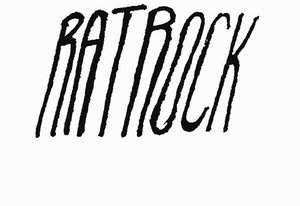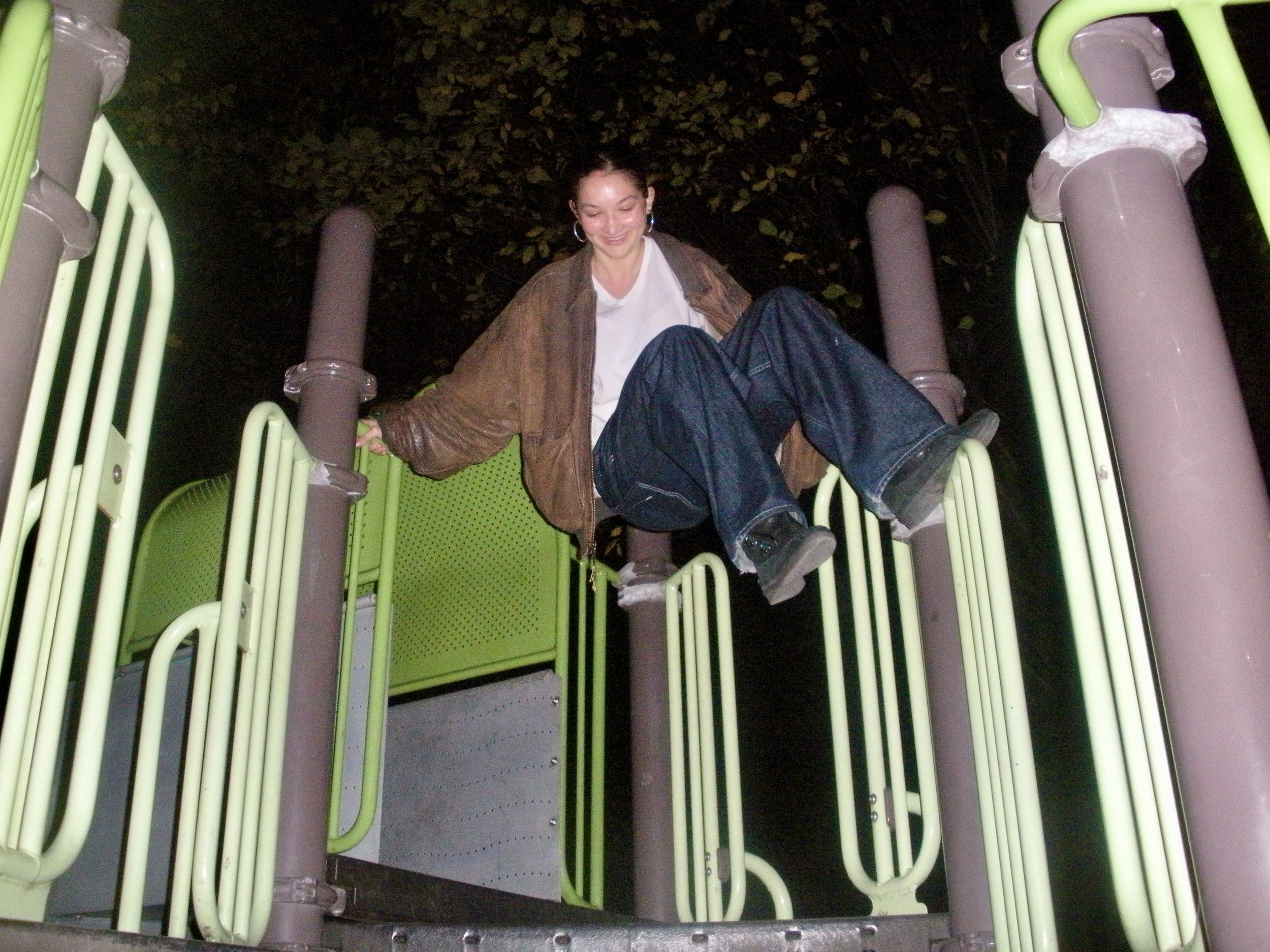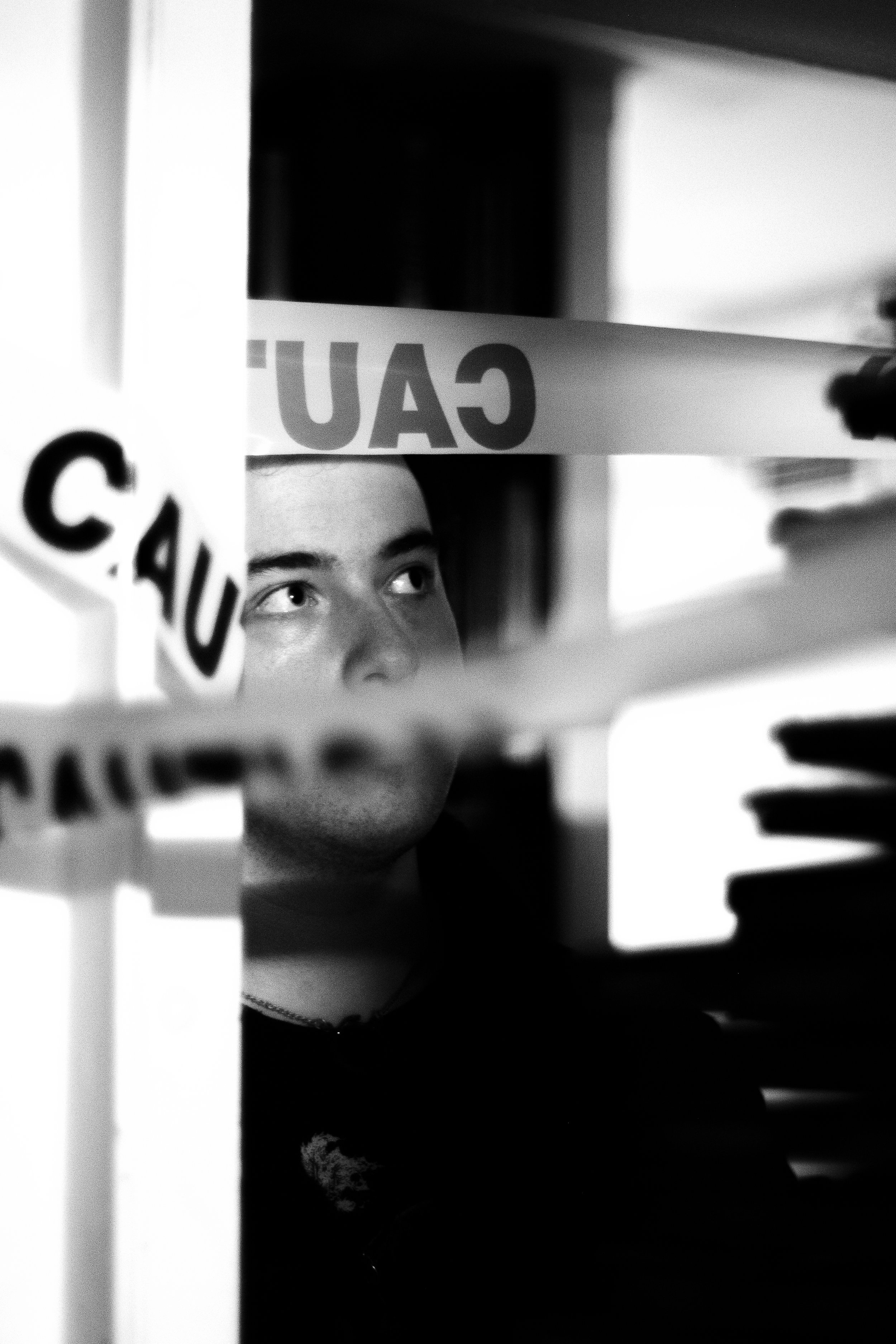





Photography by Shelby Hettler
Interview by Yosan Alemu
When did you start making art and writing poetry?
I think, in terms of performing, I started performing, when I was young, and in terms of writing, I started writing in my second year of high school because my English teacher really liked literature, and nobody seemed to like her, so I wanted her to know that at least one person was paying attention. I used to go to the library and read poems and then write poems and then give them to her—this is how I got into it.
I know that you are Kenyan. How does being African, and being apart of this diaspora influence your art?
I think my first year when I was making art, I was still stuck in this mentality, that “Oh, I’m Kenyan, I need to make art that is Kenyan or represents Kenya”, and then when I got to my first year of college, I came to this realization that those things don’t have to be necessarily tied to me in those ways, because it was really blocking me from experiencing anything else. When you’re in a place where you’re so highly “othered” or made to feel different, you always end up in this place where you’re defending your “differentness”, or you’re ending up justifying it, saying that you are also human or alive. So I kind of stopped doing that and started to explore myself and the human condition as I come to it. I think sometimes when people are like “we want this Kenyan artist to come because they’re Kenyan” this kind of reduces what I am doing to one thing, but at the same time some of my work is very pointed in terms of identity in Africa and the diaspora. I really think it’s fun to be in this place that I am now because it feels like fresh ground, and not even fresh ground in terms of land, because I don’t think it’s even land; it’s a kind of fusion of different things. And by virtue of me being Kenyan in America, and having to come into my art and exploring myself then I guess this work is rendered as Kenyan, or “othered” on Columbia’s campus.
What life experiences have shaped you as a person and how do you reflect that in your art?
Everyday is a life experience. Literally brushing my teeth is an event. I think things that have really shaped where I am in this moment particularly is having to leave home (Kenya) to come here, because in those ways I got displaced so much I had to explore myself and had to figure out what the fuck was going on. I wasn’t on that normal playground. That was one huge life event that really rocked me, and everything else has been little things here and there. Another life event I would say occurred this past summer holiday and it has really helped me come into myself, and has helped shape the way I think about certain things or how I relate to things. Every event that has happened to me has been propelling me to do something. In my last piece of work, during the winter break of last year, I was exploring the idea of being in the home and being unsafe in the home. Thinking of that piece I made in the winter, and relating it to this hashtag of “MeToo” that’s happening now, and how there are so many of us that share this experience, even though this shared experience is very secret, and people know that it is happening but they keep it to themselves, and once we bring it to the front, the magnitude is so huge. I think the life experiences that really shaped me were the ones where I had to step out of myself a lot, to be displaced.
Do you take a lot of art classes?
I don’t think so. I think I take classes about my art, classes that allow me to think more about my art, but not actual art classes. I do take acting classes, however. So far as art goes, I am taking a class for directing theatre, solo performance--this class is making me go crazy in the best way. The closest to art classes I am taking are these acting classes. I wanted to take visual arts, but I just don’t have the time. I am also interested in the theory part of art, and how art places itself in society. Art theory is really helping me understand my art.
I noticed that in your photos on the Ratrock site, you played around with the lighting. How does light, both manmade and natural play into your art?
When I was taking those pictures I was thinking about light and how it can be placed and what it does, what it reveals, and what it conceals. In those ways, I was trying to tease out the concept of what I see vs. what I don’t see. I’m taking this oceanography class and the other day we were discussing that there are certain creatures in the ocean that are a certain color because they are absorbing light differently. Light is such a huge form, element, medium that we don’t even acknowledge. Light has the power to form shadows, but at the same time, form outlines, and also shine.
Do you shoot your own videos?
Yes, I do shoot my own videos. It’s funny because the other day, I came across this Instagram account where this girl shoots herself a lot, and I do that too. I prop up my phone and mount my phone to start recording myself. I do record myself a lot, because I can frame myself and direct myself to be in front of the camera.
In your video for, a tale of Spiders, what was the message you were trying to portray? Was it a depiction of life and death?
I think it’s a kind of death. The video was essentially exploring that “MeToo” thing even before the hashtag came about. No one ever talks about the pedophiles in the home. I don’t know how it is in white families, but in black families there is a lot of “hush hush” as to present this certain kind of image. Even though it happened to me, I was silent without anyone telling me to be. This was the first time where I actually explored that idea that those people really create webs in the house. Like when there are spider webs in the corner of your walls, and you just let it be. In those ways, a part of me died through that experience, and I was trying to mourn her in a tale of Spiders. I wanted to present life being stifled out of you in ways that you can’t really explain.
In your photos, I noticed that your models are typically--if not all--black women, is there a reason why?
There’s a 102,000 reasons. Well, first of all, I’m a black woman, and my friends are black women, and I’m surrounded by black people, and I love it. I want to say we are here, but we don’t need to tell people that we are here, because by our very existence, we are. There’s this South African photographer, and she does a lot of visual diaries and in one of her videos, this interviewer asked her how she uses social media, and she replied that she uses social media to tell the world that “I’m here”. We as human beings like to reconstruct history and people don’t like thinking of the present. I make art with black women as a way to add to the documentation, to the archives, of the collective memory of the earth. Like this is the way a certain black girl was living in New York in 2017, and no one is able to reconstruct that. Back then, people lived differently and weren’t as able to leave the same kind of footprints we are leaving now, especially with the use of social media like Twitter and Instagram--which is not a good or bad thing. But I think that their footprint is harder to track. So making art about black women is a political statement. I don’t want someone in 2064 to think inaccurately about black women in 2017. This has happened throughout history where the lives of black women in the 19th century, 18th century, etc. have their lives and experiences inaccurately analyzed, and I think that is a violence in itself, and I don’t want that to happen ever again.
Do you believe art should be politicized? If so, why?
I believe in Audre Lorde’s words that the “the personal is political”. I never understand the people who say we have to separate the art from the artist. What kind of mental gymnastics are they doing? The same brain that produces these fucked up political ideas, is the same brain that produces this artwork. The things that we produce in the world are a patch up of the experiences we have had both subconsciously and consciously. If this person is politically fucked up, and even if they are making this art, somewhere in there, the political fuckedupness is embedded in that art, and that’s an energy that shouldn’t be tolerated. I definitely think art is political because it’s simply created by human beings in societies, and human beings existing in societies are political, especially if you’re a human being that has a certain kind of position enforced on you in a society that politicizes your existence. Because you exist in such a backdrop, there is no way that everything you do is not political. In America for example, being a black women is the most revolutionary existence. Even thinking about you and I sitting here on Columbia’s campus is political. Columbia literally owned slaves, or the people that founded this University owned slaves, and the boys would harass and assault black women slaves. And you and I are here sitting in Columbia’s campus. I don’t have the luxury to not be political because the backdrop I’m living in is politically volatile. .
I noticed that in your videos, they depict emotions like love and pain, emotions that are very powerful, and even at times can be intertwined. Would you like to elaborate?
The way I live through life, I don’t yearn for love as much, that’s why through art, I can show it more. Most of the art I have been making has been coming from a secret garden in my heart. I have been producing these art pieces in the aftermath of feeling hurt, or pain. For me, I cannot separate love and pain as different entities. Now I feel like I need to tease out and explore pain, especially if it always comes with love. That’s why through art I am trying to depict pain in different ways. Can pain be good? I love love, but love comes with pain. Instead of creating a polar opposite of love and pain, I’m trying to find the common ground between the two.
You put a lot of your videos on Youtube. Do you think Youtube is a good medium for art?
I have been having such a huge problem with where to put my art. There’s Youtube, Instagram, Tumblr, and other mediums. If I put my work on Youtube that is somewhere where people can access it forever and ever--it’s very accessible. It would be such a milestone to reach people that don’t have access to Youtube as a base form, as a space. I also think I put my work on Youtube so I can visibly see my growth. I think I’m also moving a little to Instagram, but with Instagram I can only show snippets of who I am. I make a lot of videos for Instagram as a way to tell myself that I am here. Sometimes I walk around campus and record myself, so I can later watch it and tell myself that I exist. I am, I am, I am. There is the guy in the CC reading who says the "I think therefore I am" thing, what’s his name? Is it Kant… I don’t know, one of those people… but that fucked me up because when he's saying those things, only a certain subset of people are regarded as "thinking". So, if someone thinks that you don’t think, then they can say or think you are not there, so I am trying to be "I exist therefore I am" or "I can be perceived visually, therefore I am".
Closing statements?
I am a third year in Columbia College. I am a black woman. I am a lesbian. I am a person who is trying to trace, leave, and document the footprints on this earth.






























